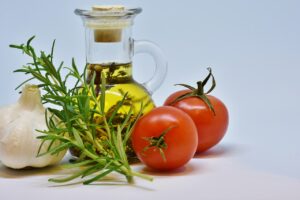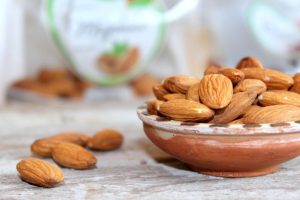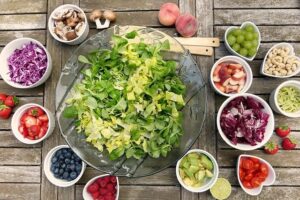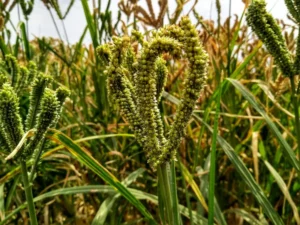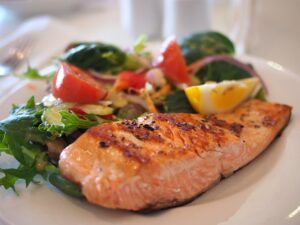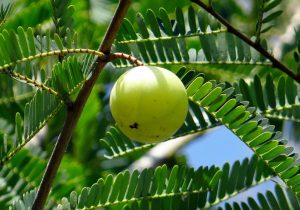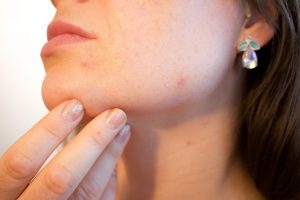Are you looking for PCOS diet plan to get pregnant? PCOS, or polycystic ovarian syndrome, is a hormonal disorder that may strike women in their prime reproductive years. It may impact your fertility (your doctor will call it your fertility). It is also possible:
- Stop or make it difficult to forecast your periods.
- Acne and unwelcome body and face hair may be caused.
- The risk of diabetes and high blood pressure increases when you smoke.
- Symptoms may be addressed medically. Then there is the possibility of becoming pregnant; however, you may need to take fertility medication.
- Cysts on the ovaries may be seen in some women with PCOS. That is how the term “polycystic” came to be.
- However, the term is deceptive since many women with PCOS do not have cysts in their reproductive system.
In today’s article we have lined up the 7 day PCOS diet plan so let’s get started.
Symptoms
As a child’s first menstrual cycle approaches, symptoms and signs of PCOS may begin to emerge. PCOS may appear later in life, for example, due to weight increase.
Symptoms of PCOS may vary widely. At least two of the following symptoms are required for a PCOS diagnosis:
The most prevalent symptom of PCOS is irregular, lengthy, or infrequent menstrual periods. There might be less than nine monthly cycles in a year, a period interval of more than 35 days, or a hefty period.
Too much testosterone. Physical symptoms such as excessive face and body hair (hirsutism), severe acne, and male pattern baldness may occur when male hormone levels are elevated.
Ovarian cysts. It is possible that your ovaries are more prominent and that follicles surround the eggs. Therefore, it’s possible that the ovaries won’t work as they should.
The severity of your PCOS symptoms is likely to be worse if you are fat.
Dietary Guidelines For Women With Polycystic Ovary Syndrome (PCOS):
Dealing with the polycystic ovarian syndrome (PCOS) symptoms may be exhausting at times. Some of the items on your to-do list include acne, excessive hair growth, insulin resistance, and difficulties shedding pounds. If not adequately managed and treated, PCOS may cause significant side effects, including high blood pressure, heart disease, diabetes, and even endometrial cancer.
The intensity of your PCOS symptoms might be significantly influenced by the foods you consume or don’t eat. Making dietary adjustments has shown to be an effective way for many PCOS sufferers to lessen their symptoms and lower their chance of developing medical issues. The following is a list of PCOS diet plan Dos and Donts:
Do’s:
- Do eat more fibre-rich meals. Because they minimise blood sugar spikes and delay digestion, they aid those with insulin resistance. High-fibre foods include broccoli, cauliflower, red and green peppers, almonds, sweet potatoes, and pumpkin.
- Do include additional lean protein in your diet. Chicken, fish, and egg whites are high in lean protein, but they don’t contain a lot of fibre to keep you feeling full and balance your blood sugar levels.
- It would help if you ate more meals that reduce inflammation. Anti-inflammatory foods like tomatoes, spinach, strawberries, walnuts, almonds, turmeric, and fatty fish like sardines and salmon may help alleviate PCOS symptoms since inflammation is a primary cause of the condition.
Don’ts:
- Refined carbs should be avoided at all costs. When you have PCOS and eat white bread, pastries, muffins, and potatoes, you aggravate insulin resistance and inflammation.
- Don’t eat or drink anything sweet. If you want to prevent insulin resistance, you must avoid sugar. On food labels, look for sugar by various names, including sucrose, dextrose, and high fructose corn syrup.
- Avoid foods that cause inflammation. These meals exacerbate PCOS symptoms. Red meat and other processed meats are included in this category and should be avoided to the greatest extent feasible.
PCOS- Meals
If you have been told you have PCOS, pay attention to what you put in your body now.
Nutritional Facts
Before you shout, fat is not the enemy! Avocados and fatty fish are excellent sources of healthy fats, essential if you have PCOS and want to maintain a balanced diet. Required fatty acids, essential for cell wall integrity, may be found in healthy fats. In addition, they are essential for maintaining hormonal equilibrium and a healthy weight.
Women with PCOS are concerned about fertility and pregnancy, and fatty acids play an essential role.
Antioxidant-Rich Foods Include Berries, Nuts, And Green Tea
If you’re looking for the most antioxidant-rich foods, you’ll find a list here. Dark chocolate, pecans, and goji berries are some foods strong in antioxidants you may eat. With PCOS, these nutrients are more relevant than they do for healthy diets in general.
Oxidative stress is more significant in women with PCOS, which may be reduced by increasing our intake of antioxidants in our diet. Several fruits might increase blood sugar levels, which may have consequences for PCOS-related diabetes if you choose them based on their glycaemic index (GI).
Wholegrain
Type 2 diabetes is four times more common in women with PCOS, and whole grains include significant quantities of fibre that may help regulate insulin levels. It’s important to eat meals high in fibre since they take longer to digest and provide a steady supply of energy. In other words, they release sugar into the blood more slowly and consistently, which means they are less likely to induce the increases in blood sugar levels often linked with type 2 diabetes.
List Of Foods To Avoid If You Have PCOS :
If you’ve been diagnosed with PCOS, these are the foods you should avoid or limit your intake of.
Preserved Foods
There is a clear correlation between insulin production and diabetes and the Glycaemic Index (GI) of processed meals. Women with PCOS are at an increased risk of developing diabetes. Thus they must avoid high GI meals, which may cause a surge in blood sugar levels. White potatoes, white bread, and white rice are all examples of refined carbs, and so are processed foods like biscuits, cakes, and ready-to-eat meals.
Unhealthy Fats
We’ve previously established that ‘good fats’ may aid in treating PCOS, while ‘bad fats’ have the reverse effect. Saturated and hydrogenated fats may be found in dairy products like milk and cheese, rich red meats, processed meats, and fried foods, among other things. In addition to making your PCOS symptoms worse, these fats may contribute to weight gain and further aggravate them.
Gluten
If you’re diagnosed with PCOS, you may be recommended to limit your intake of gluten-containing foods, even if you don’t have the disease. Inflammation caused by gluten may create insulin resistance and raise the chance of developing diabetes. Excess androgen production has been linked to PCOS symptoms such as weight gain and irregular periods in those with higher levels of inflammation.
7 Days PCOS Diet Plan :
Let’s check out the healthy diet for PCOS –
|
|
Breakfast |
Lunch |
Dinner |
Monday |
Banana Yogurt Pots | Cannellini Bean Salad | Quick Moussaka |
Tuesday |
Tomato and Watermelon Salad | Edgy Veggie Wraps | Spicy Tomato Baked Eggs |
Wednesday |
Blueberry Oats Bowl | Carrot, Orange and Avocado Salad | Salmon with Potatoes and Corn Salad |
Thursday |
Banana Yogurt Pots | Mixed Bean Salad | Spiced Carrot and Lentil Soup |
Friday |
Tomato and Watermelon Salad | Panzanella Salad | Med Chicken, Quinoa and Greek Salad |
Saturday |
Blueberry Oats Bowl | Quinoa and Stir Fried Veg | Grilled Vegetables with Bean Mash |
Sunday |
Banana Yogurt Pots | Moroccan Chickpea Soup | Spicy Mediterranean Beet Salad |
PCOS Sufferers Might Get The Benefits Of Protein Supplementation:
Studies demonstrate that a high-protein, low-carbohydrate diet may have some advantages for women with PCOS, but it is not a cure or therapy in and of itself.
Help increase metabolism: All meals have a thermic effect, which means that they influence your rate of metabolism and the number of calories expended. Protein has a thermic effect of 15-30%, which is significantly higher than carbohydrates (5-10%) or fats (0 to 3 per cent). As much as 100.3 more calories might be burnt each day if you eat more protein.
Glucose (blood sugar) levels are raised by all meals, making it challenging to maintain healthy blood sugar levels. Protein has a negligible effect on blood sugar levels since it is digested slowly. Proteins are broken down into amino acids, which take longer to break down into glucose, while carbs may be broken down instantly into glucose.
According to research published in Diabetologia this year, high-protein PCOS cure diet for six weeks may lower postprandial (post-eating) and fasting glucose levels in persons with type 2 diabetes.
Glucophage (glucagon), a hormone that elevates blood sugar levels and counteracts insulin, is released when consuming protein.
To maintain a healthy blood sugar level, it is essential to consume enough protein. Several studies have shown that a high-protein PCOS diet plan Indian. People with PCOS who followed a low-fat diet for six months dropped an average of nine pounds, according to Danish research from 2012.
Those who followed a diet containing 30% protein reduced weight and had decreased testosterone levels and better insulin sensitivity in a 2012 Iranian study of 60 overweight women who had PCOS.
Finally,
If you suffer from PCOS and have difficulty managing your weight or blood sugar levels, a high-protein/low-carb diet may be worth a shot. To establish an eating plan that is right for your age, weight, and medical condition, work with a healthcare professional or a nutritionist to identify meals you genuinely love. A healthy diet and the advantages that come with it may be maintained.
FAQs :
-
What is the significance of a PCOS diet?
PCOS may be managed by a healthy diet and regular physical activity (Polycystic Ovary Syndrome). PCOS is associated with elevated hormone insulin levels in the blood, and many young women with PCOS struggle to maintain healthy weights.
-
What role does food have in PCOS?
Insulin resistance makes it difficult to reduce weight, so PCOS patients often have this problem. Insulin resistance, hence Indian diet chart for weight loss, may be exacerbated by a diet heavy in refined carbohydrates, such as starchy and sugary meals.
-
Is fasting beneficial for PCOS?
Early research suggests that intermittent fasting is connected to improved cognitive function and focus in individuals with PCOS. The development of cells. Lower your cholesterol levels.
Also Read : All About Bland Diet : Foods to Eat and Avoid



